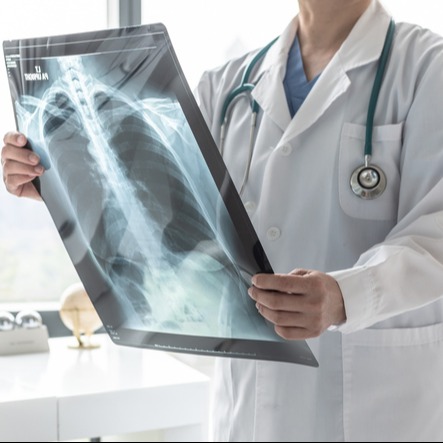
The US Food and Drug Administration (FDA) approved a treatment for pulmonary arterial hypertension (PAH) on March 26, 2024.
The announcement was great news, as I have managed many PAH patients over the years. The only treatments I could offer them were supplementary oxygen and other comfort measures. When I was a graduate student over thirty years ago, we were still trying to figure out the mechanisms that caused PAH. It is a small comfort to the patients and their families whom I could not treat during those thirty years, but now there is some hope.
Key Takeaways
The approval of Winrevair offers new hope for patients suffering from pulmonary arterial hypertension (PAH).
Winrevair represents a breakthrough as it targets the underlying cause of PAH, unlike existing therapies that only alleviate symptoms.
Addressing PAH's devastating impact is urgent due to its staggering mortality rate and complex pathophysiology.
Winrevair's availability, along with financial assistance programs, provides key details for patients seeking treatment.
Robust trial results have demonstrated Winrevair's clinical efficacy, along with the convenience of its subcutaneous administration.
What Is PAH?
Unlike existing therapies that merely alleviate symptoms, WINREVAIR™ (sotatercept-csrk) represents a breakthrough as the first medication targeting the underlying cause of PAH.
PAH is a progressive condition characterized by constricting pulmonary blood vessels, leading to heightened blood pressure within the arteries supplying blood to the lungs. This increased pressure places undue strain on the heart, eventually resulting in cardiac damage and a subsequent decline in physical functionality. The gravity of PAH is underscored by its staggering mortality rate, with diagnosed individuals facing a daunting 43% chance of succumbing to the condition within just five years. This statistic highlights the critical imperative for developing and deploying efficacious treatment modalities to combat PAH's devastating impact.
The pathophysiology of PAH involves a complex interplay of various molecular pathways, including dysregulated endothelial function, abnormal proliferation of vascular smooth muscle cells, and inflammatory processes within the pulmonary vasculature. These intricate mechanisms contribute to the progressive narrowing of pulmonary arteries, culminating in the characteristic elevation of pulmonary arterial pressure and subsequent right heart failure. Despite advances in understanding the underlying pathogenesis, therapeutic interventions for PAH remain challenging, often providing only palliative relief and failing to address the root cause of the disease.
Considering the dire prognosis associated with PAH, there is a pressing need for novel therapeutic strategies that not only alleviate symptoms but also target the fundamental mechanisms driving disease progression. Research efforts to unravel the molecular underpinnings of PAH hold promise for developing targeted therapies capable of halting or even reversing disease progression, offering hope for improved outcomes and enhanced quality of life for affected individuals.
Hope Is on the Way
Merck anticipates Winrevair's availability in select specialty pharmacies nationwide by the end of April. Administered via injection every three weeks, the drug will be offered in single-vial or double-vial kits, with an initial price point of $14,000 per vial before insurance coverage. Merck has established a program to assist eligible patients with out-of-pocket expenses and copayments to mitigate financial burdens.
Winrevair is intended to complement existing therapies to enhance exercise tolerance, mitigate PAH severity, and reduce disease progression risk. This approval holds strategic significance for Merck, aligning with its broader objectives of diversifying revenue streams, particularly as its flagship cancer immunotherapy, Keytruda, faces an impending market exclusivity loss in 2028. Analysts project Winrevair to emerge as a substantial revenue driver for Merck, with estimated annual global sales surpassing $5 billion by 2030. Merck's Chief Medical Officer, Eliav Barr, underscores the transformative impact of Winrevair on PAH patients, characterizing it as a "paradigm shift" in disease management.
Merck's acquisition of Acceleron Pharma in 2021 secured Winrevair's development rights, reflecting the company's strategic foresight in addressing the growing PAH market, estimated to reach $7.5 billion by 2026.
FDA approval hinged on robust data from a late-stage trial involving over 300 PAH patients already receiving standard therapy. Results demonstrated that Winrevair substantially improved exercise capacity when combined with existing treatment, with patients exhibiting a mean increase of 40.8 meters in a six-minute walking distance compared to placebo recipients.
Moreover, Winrevair demonstrated efficacy across multiple secondary endpoints, notably reducing the risk of disease exacerbation or mortality by 84% compared to standard therapy alone. Adverse events associated with Winrevair were generally less severe than placebo, with common side effects including nosebleeds, headaches, and rashes.
An advantageous feature of Winrevair is its subcutaneous administration, offering convenience and autonomy to patients and caregivers, a departure from the necessity for infusion center-based administration with some existing PAH treatments.
Phases two and three of the trials elucidated Winrevair's efficacy in advanced PAH and recently diagnosed patients. As Merck continues its commitment to advancing Winrevair's clinical development, the drug holds promise as a cornerstone in managing PAH, offering hope to patients and clinicians alike.
Advice for Patients
If you have any questions or concerns about PAH, it is crucial to consult a licensed healthcare professional for personalized guidance and support. PAH is a complex and potentially life-threatening condition that requires expert medical management. Whether you seek clarification about your diagnosis, treatment options, potential side effects of medications, or strategies for managing symptoms, your healthcare provider is your best resource. They can offer tailored advice based on your health status, medical history, and specific needs. Additionally, they can help you navigate the complexities of PAH management, coordinate with specialists as needed, and provide ongoing monitoring to ensure optimal care and treatment outcomes.
Open communication with your healthcare team is essential for maintaining your health and well-being while living with PAH. Never hesitate to contact your healthcare provider if you have any questions, uncertainties, or changes in your condition. Your proactive engagement in your healthcare journey can empower you to make informed decisions and effectively manage your PAH for the best possible quality of life.
Rely on PlanetDrugsDirect.com to Buy Prescription Discount Drugs Online
As a trusted prescription referral service, we offer important benefits whenever you order online. Each of our partner pharmacies and/or government-approved dispensaries is committed to providing the best experience possible of any online prescription referral service on the internet. We offer:
Low prices
Quick turn-around times
Generic and brand-name medications
Unparalleled customer service
Sources
Merck. (2024, March 26). FDA approves Merck's Winrevair (sotatercept-csrk), a first-in-class treatment for adults with pulmonary arterial hypertension (PAH) WHO Group 1. Retrieved from https://www.merck.com/news/fda-approves-mercks-winrevair-sotatercept-csrk-a-first-in-class-treatment-for-adults-with-pulmonary-arterial-hypertension-pah-who-group-1/
CNBC. (2024, March 26). FDA approves Merck drug sotatercept for rare, deadly lung condition. Retrieved from https://www.cnbc.com/2024/03/26/fda-approves-merck-drug-sotatercept-for-rare-deadly-lung-condition.html
Simonneau, G., Montani, D., Celermajer, D. S., Denton, C. P., Gatzoulis, M. A., Krowka, M., ... & Humbert, M. (2019). European Respiratory Journal, 53(1), 1801913. https://doi.org/10.1183/13993003.01913-2018
Humbert, M., Guignabert, C., Bonnet, S., Dorfmüller, P., Klinger, J. R., Nicolls, M. R., ... & Simonneau, G. (2019). European Respiratory Journal, 53(1), 1801887. https://doi.org/10.1183/13993003.01887-2018
McLaughlin, V. V., Hoeper, M. M., Channick, R. N., Chin, K. M., Delcroix, M., Gaine, S., ... & Rubin, L. J. (2015). Journal of the American College of Cardiology, 71(7), 752-763. https://doi.org/10.1016/j.jacc.2017.11.044
 Medically reviewed by
Medically reviewed by 





